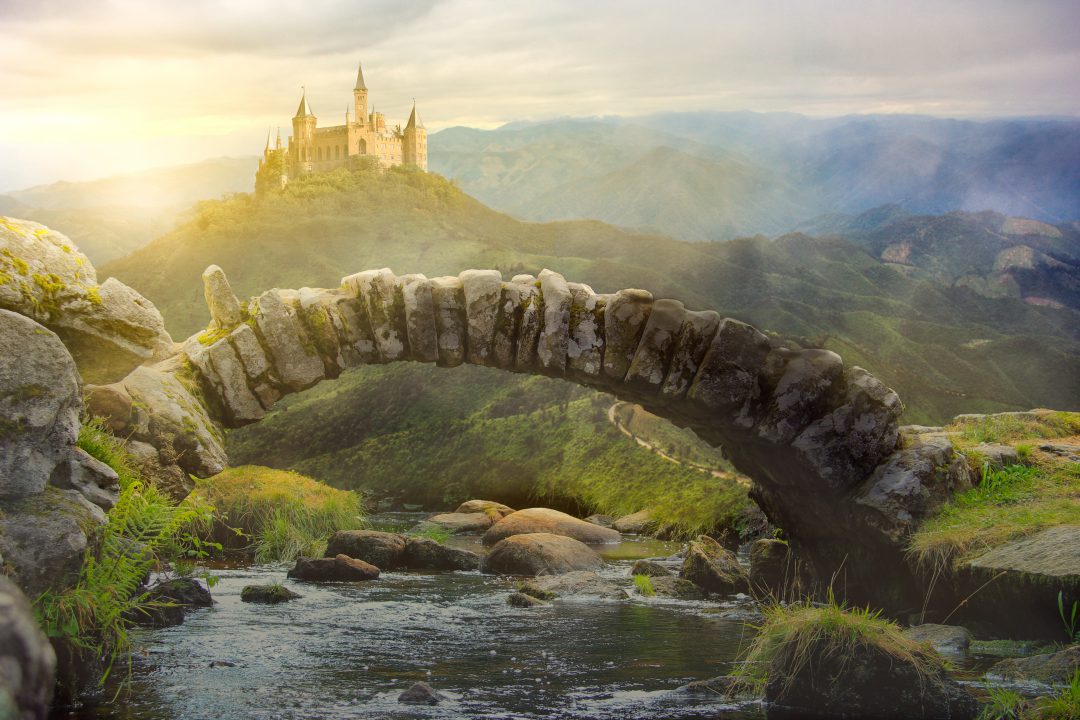The beauty of writing speculative fiction is that anything is possible. Magic. Time Travel. World peace… (is it too cynical to think that the two formers are more possible in our real world than the latter? #writerprobs #historyteacherprobs) …and, while working in a world that will be shaped by your hand means the possibilities are endless, it also means that you have to play god, and literally build a world from scratch.
How the hell do you do that? Simple. And, lo, on the seventh day, god researched!
Writers research, period. Authenticity is key, regardless of whether you are writing realistic or fantasy driven fiction. While authors writing crime drama need to understand the mechanics of police procedure and writers of historical fiction need to understand the protocols of social status and gender, they both have the luxury of using anecdotal and empirical evidence to help them write authentically. Spec writers… well, we just make shit up, right?
Wrong. Well… kinda wrong. Wrongish.
You cannot just create matter from nothing. All cells come from previous cells. As too, with speculative fiction; you don’t just create something from nothing. The facets of the real world serve as our inspiration for fantasy worlds. The conflict that develops in fantasy setting may be fueled by metaphysical, magical, or technological issues, but it all stems from issues we encounter as real world people. Any fan of Star Trek: the Original Series will tell you that what made the show so amazing was its ability to take real world, contemporary issues and work them into a science fiction context. Species were based on cultures of Earth, albeit some were done in woefully poor and racist taste. Religious, ethical, political, ecological, cultural, and economic issues were not limited to human beings — they impacted species across the universe.
If there is one universal truth, it is that sentient beings, no matter how utopian and peaceful their society is, will always have shit to fight about. And that brings me back to my point: some aspects of the real world are universal to any society. If you want to build a fictional world, you have to start with a foundation, a template, and customize from there.
“If you’ve done your due diligence when building your fictional world, it will bleed into your writing without any great effort on your part.”
So, what makes a world? Here is the basic structure of any society, regardless of time period, culture, or race.
- Setting
- Political & Economic system
- Shared cultural beliefs
- Science & Technology
Setting
The variables of setting are very important to your world, and can either structure your world, or limit the possibilities. One of the most important ways to show authenticity is to make sure that the setting reflects every other aspect of your society.
- Geography — What resources are available in this region? How do the people regulate resources, and does that create conflict? Do the seasons change? Are their multiple environments in one land, or is it all the same? Do the people adapt to the environment, or do they adapt the environment to meet their needs through modification and technology? What kind of flora and fauna live in the environment, and how does that impact the people?
- Time Period — What freedoms do people have, and what limitations? For lack of better words (because as a historian, my brain throws up red flags and sees these words as ethnocentric), how “barbaric” , “primitive”, “advanced”, or “civilized” are the people? What constitutes the difference between the meaning of these words in their world? Are people treated differently based on race, class, gender, religion, sexual orientation, or other minority qualifiers? What changes has your world seen over its existence? Who has power, why, and has that changed? What historical events have shaped the world currently?
- Science — What is technology to your people, meaning any device that makes life simpler? Do magic/paranormal/metaphysical components exist in this world? What is the difference between science and magic and religion, and does that distinction cause conflict?
Political & Economic Systems
What kind of political system(s) exist in the world, and how are they organized? Who created them? Have they always existed? What is considered to be the responsibility of the government, and of the individual? How are children educated, if at all? What is considered a well-rounded education? What are the laws, who created them, why, and how are they enforced?
It’s easy to overlook, but a nation’s government and economy are intrinsically linked. The attitudes towards making money, public services, and other ethics about business will impact how governments make laws, protect their people, and provide services. What kind of economy exists in your world? Who controls it? What kinds of goods are made, and what kinds of services are offered? Does the environment and resources play a role in that? What jobs are available?
“If there is one universal truth, it is that sentient beings, no matter how utopian and peaceful their society is, will always have shit to fight about.”
Shared Cultural Beliefs
What unites the people of this world? What do they eat? What do they believe? How do they dress? What is sacred and blasphemous to them? What language do they speak? What are the customs and traditions in this world? What happens when parts of this culture are changed/forgotten/ignored, and does that cause conflict? Are multiple cultures fighting for resources/rights/autonomy, or do they live in harmony? How does the culture impact class, gender, age, and what expectations are held for those qualifiers? How has history played a role in the development of the culture(s)?
Science & Technology
A huge misconception modern humans have when it comes to technology is that it has to be digital, futuristic, world of tomorrow kind of stuff. But, from the historical perspective, technology is really anything that has made life easier. Many people would automatically jumped to the progress made my weapons and tools, but it gets even more simple than that. We may be spoiled with our personal pocket computers, but at one point, all those things a cell phone or tablet does, were distinct forms of technology. Printed books, brought about by the printing press, were an incredibly advanced tech in the Middle Ages. Pencils were cutting edge shit. A writing system in general changed to world, drawing the line between recorded history and pre-history, forever dividing us civilized people from those primitive savages. With this idea in mind, think about everything that makes your life safe, comfortable, and simple. Now, examine what the people in your world would need to feel the same way?
- How do people communicate?
- How to they move goods and people?
- How do they fight?
- How do they farm?
- How do they learn and discover?
- How do they heal?
- How do they play and relax?
- How do they record information?
Even if not directly important to or acknowledged in the story, these are the bare minimum elements of the world that should be addressed. The reader doesn’t need to know all of the details, especially if it will amount to endless pages of backstory and context, or if it’s irrelevant to the basic plot. But, as a writer, these are things that need to be considered to have a fleshed out understanding of how your characters will act, react, view, and function in their world. If you’ve done your due diligence when building your fictional world, it will bleed into your writing without any great effort on your part. You will be able to avoid heavy-handed exposition and your readers will appreciate the opportunity to fill in some of the blanks themselves.
“You cannot just create matter from nothing. All cells come from previous cells. As too, with speculative fiction; you don’t just create something from nothing.”
Remember too, that when you are building your world, the real world is full of inspiration for the elements you need to make it seem authentic. That requires research. Good research- not a cursory skimming of a Wiki page. All of us at IndiePen Ink know just how complex and time consuming proper research can be. Lucky for you, our strife has turned into your benefit, as it has inspired us to create a truly helpful research resource for writers unlike any other: The Research-a-Torium. A writers reference source that can guide you to online resources and services, as well as services and titles you can find at you own local library. Thanks to the tireless work of our Lady of the eLibrary, Caitlin, we expect to be opening the doors by the end of July.
COMING SOON TO AN INTERNET NEAR YOU!
Start working out those worlds now, and when you get stuck, come see Caitlin in the Research-a-Torium for a world of resources guaranteed to inspire.
Write on young savior,









